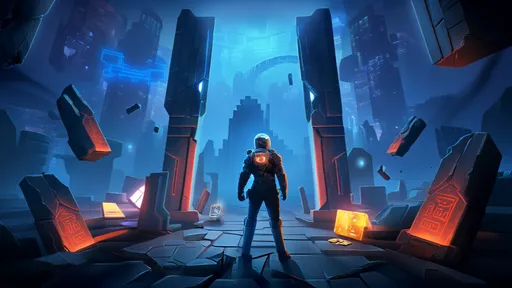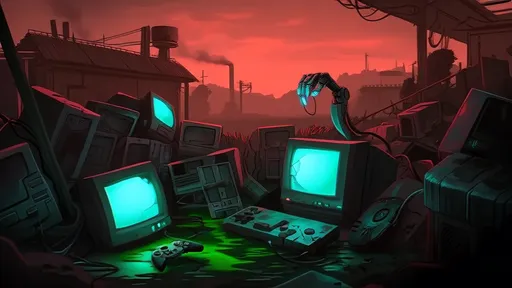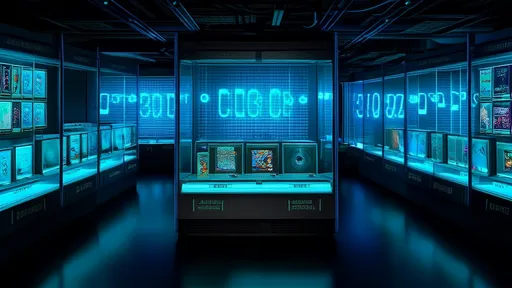The virtual real estate market, once hailed as the next frontier of digital investment, has experienced a dramatic collapse that has left investors and analysts scrambling for answers. The metaverse, a collective virtual shared space created by the convergence of virtually enhanced physical reality and physically persistent virtual spaces, saw its land prices skyrocket during the peak of its hype cycle. However, the recent plunge in virtual property values has exposed the fragility of this nascent market, raising questions about its long-term viability.
The Rise and Fall of Metaverse Real Estate
At the height of the metaverse boom, companies like Decentraland and The Sandbox became household names among tech enthusiasts and investors. Virtual plots of land in these digital worlds were selling for millions of dollars, with celebrities and major corporations jumping on the bandwagon. The promise of a fully immersive digital economy where people would work, socialize, and spend most of their waking hours seemed just around the corner. Investors poured money into virtual real estate, betting that these digital assets would appreciate just like physical property in prime locations.
However, the reality turned out to be quite different. As user engagement failed to meet expectations and the broader crypto market faced a downturn, the bubble began to deflate. Prices for virtual land parcels that once sold for six or seven figures are now trading at a fraction of their peak values. Many early adopters find themselves holding worthless digital deeds to properties in virtual worlds that nobody visits anymore.
Understanding the Crash
The virtual real estate crash didn't happen in isolation. Several factors converged to create the perfect storm. First, the initial hype far outpaced actual adoption. While media coverage made it seem like millions were flocking to the metaverse, daily active users across all platforms never reached critical mass. Second, the technology wasn't ready. Clunky interfaces, poor graphics, and lack of interoperability between platforms made for a disappointing user experience. Third, and perhaps most importantly, people realized they didn't actually want to spend their lives in virtual reality headsets.
Economic factors played a significant role as well. The crypto winter that began in 2022 dried up liquidity across digital asset markets, including virtual real estate. Many metaverse projects were built on blockchain technology and relied on cryptocurrency transactions. As crypto prices collapsed, so did the perceived value of virtual properties denominated in those currencies.
Lessons from the Bubble
The virtual real estate boom and bust offers several important lessons for investors and technologists. First, it demonstrates how quickly speculative bubbles can form around new technologies, especially when fueled by celebrity endorsements and media frenzy. Second, it shows that digital scarcity alone doesn't create value - there needs to be genuine utility and demand. Just because something is limited in quantity doesn't automatically make it valuable.
Perhaps most importantly, the crash reveals the dangers of projecting physical world economic models onto digital spaces. Real estate works as an investment in the physical world because land is genuinely scarce and location determines access to resources and opportunities. In virtual worlds, where space is theoretically infinite and "location" means nothing beyond arbitrary coordinates, these traditional valuation models break down completely.
The Future of Virtual Spaces
While the virtual real estate crash has been painful for many investors, it doesn't necessarily spell the end for the metaverse concept. The underlying technologies continue to advance, and more practical applications are emerging beyond speculative land grabs. Companies are finding value in virtual spaces for training, collaboration, and specialized applications where physical presence is impossible or impractical.
The key difference moving forward may be a shift from speculative investment to actual utility. Instead of treating virtual land as a financial asset, successful projects will likely focus on creating spaces that people genuinely want to inhabit and use. This might mean smaller, more focused virtual environments rather than attempts to recreate entire digital cities that nobody needs.
As the dust settles from the virtual real estate crash, the industry appears to be entering a more mature phase. The irrational exuberance has faded, leaving room for more measured development focused on real user needs rather than financial speculation. While the dream of a fully-realized metaverse may have been premature, the technologies developed during this period will likely find more sustainable applications in the years to come.
The story of virtual real estate serves as a cautionary tale about the dangers of hype cycles and the importance of building technology that solves real problems rather than chasing speculative bubbles. As with many technological revolutions before it, the path to meaningful innovation often involves painful corrections that separate substance from speculation.

By /Jul 3, 2025

By /Jul 3, 2025

By /Jul 3, 2025

By /Jul 3, 2025

By /Jul 3, 2025

By /Jul 3, 2025

By /Jul 3, 2025

By /Jul 3, 2025

By /Jul 3, 2025

By /Jul 3, 2025

By /Jul 3, 2025

By /Jul 3, 2025

By /Jul 3, 2025

By /Jul 3, 2025

By /Jul 3, 2025

By /Jul 3, 2025

By /Jul 3, 2025

By /Jul 3, 2025